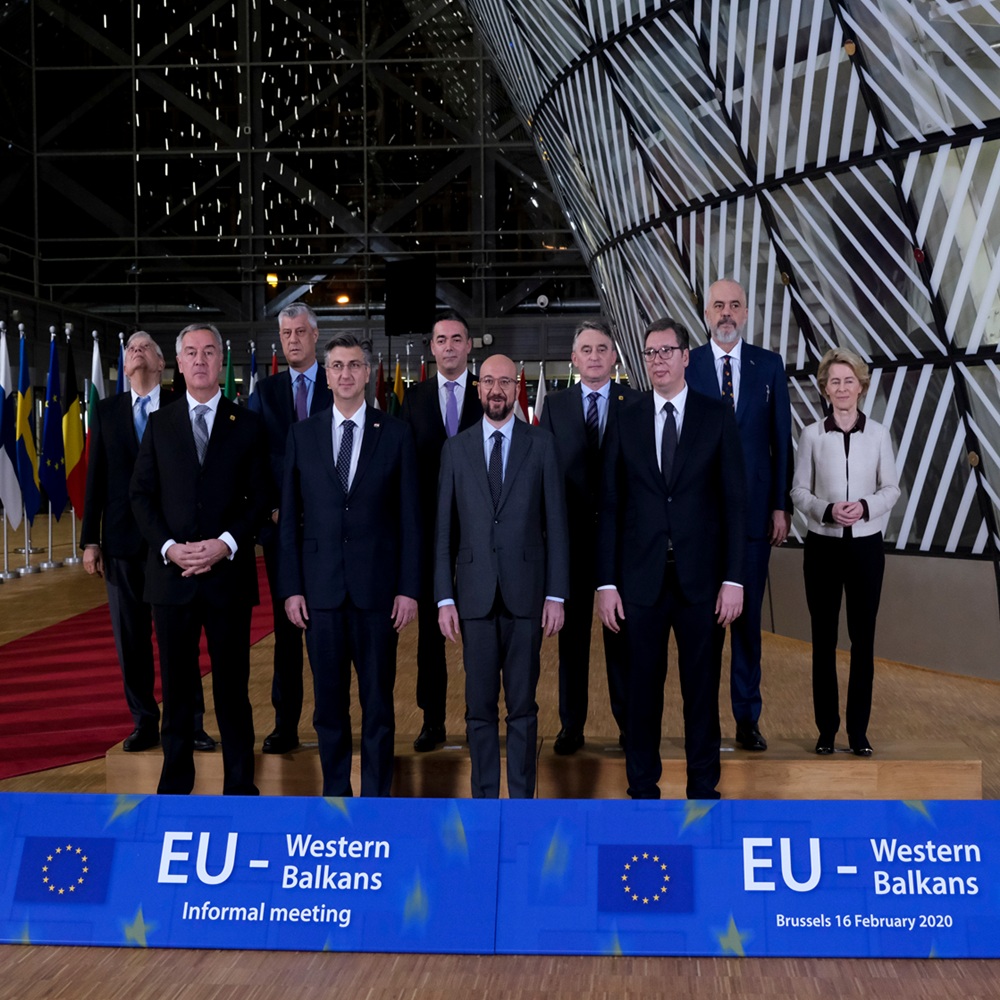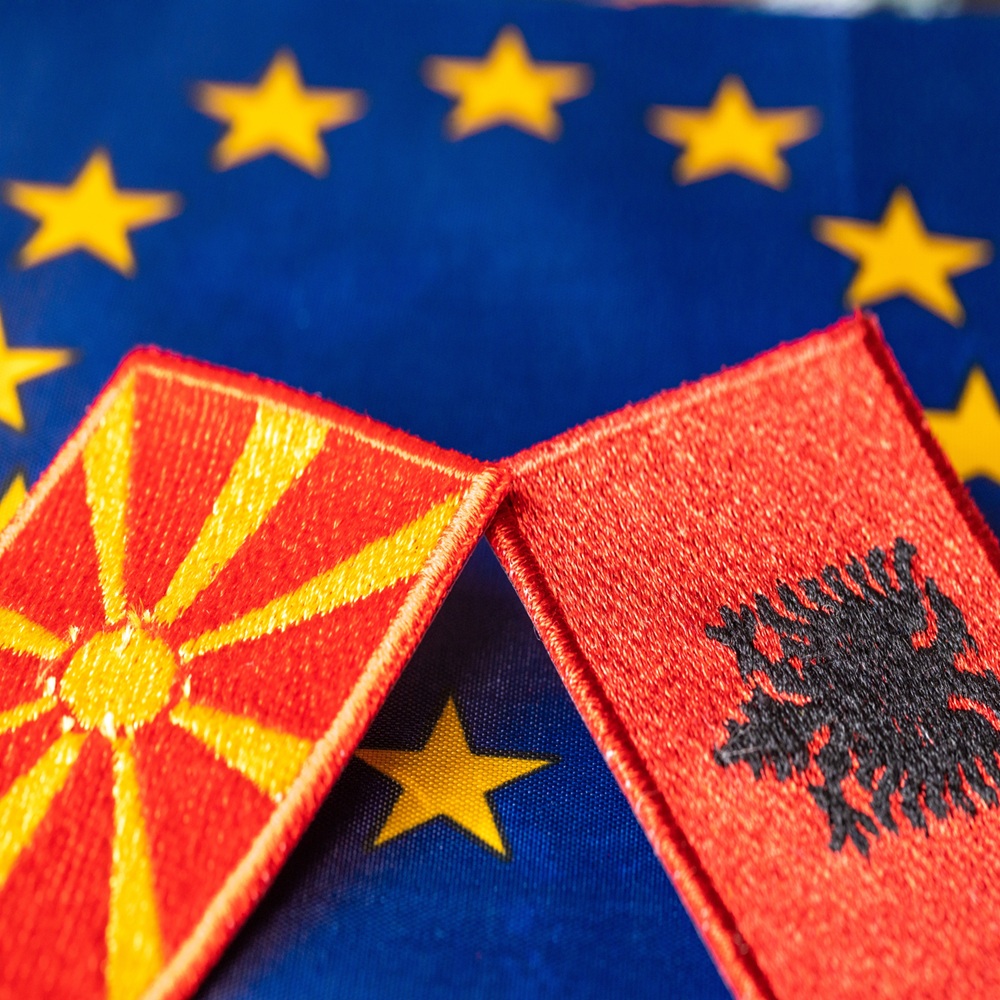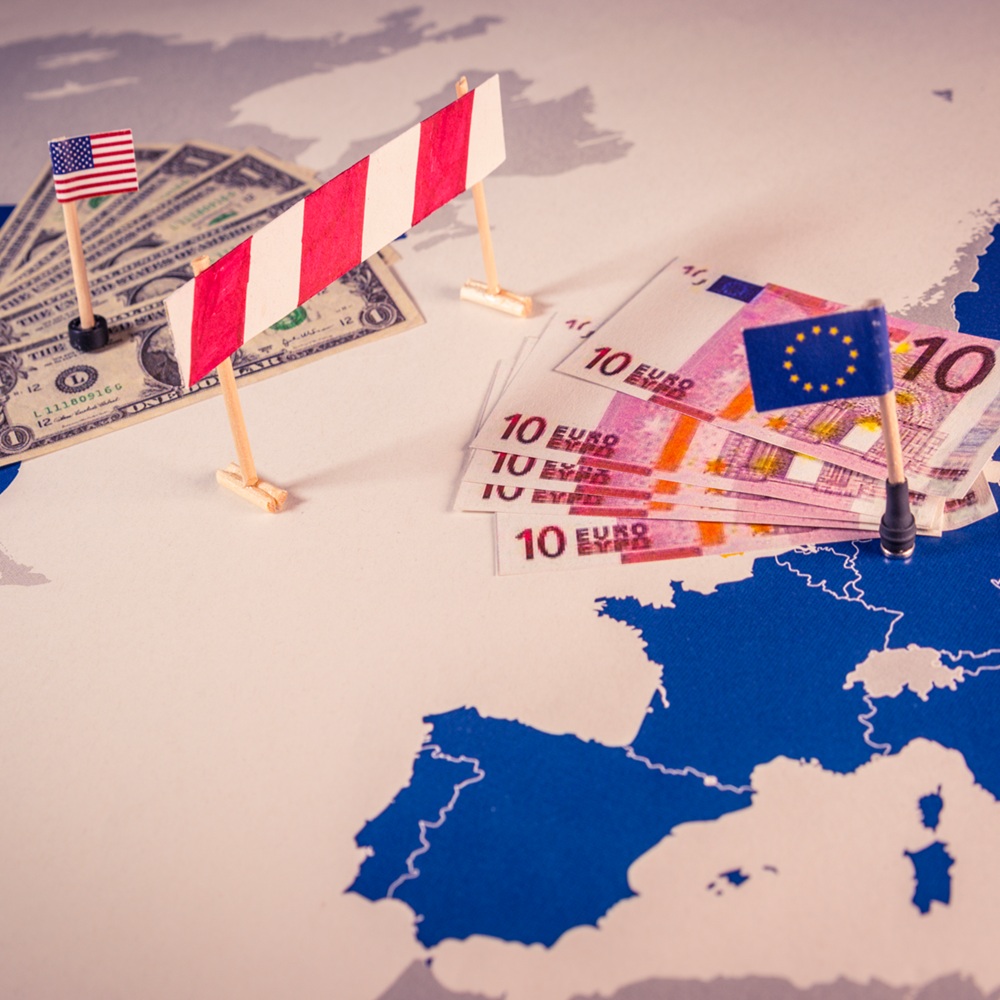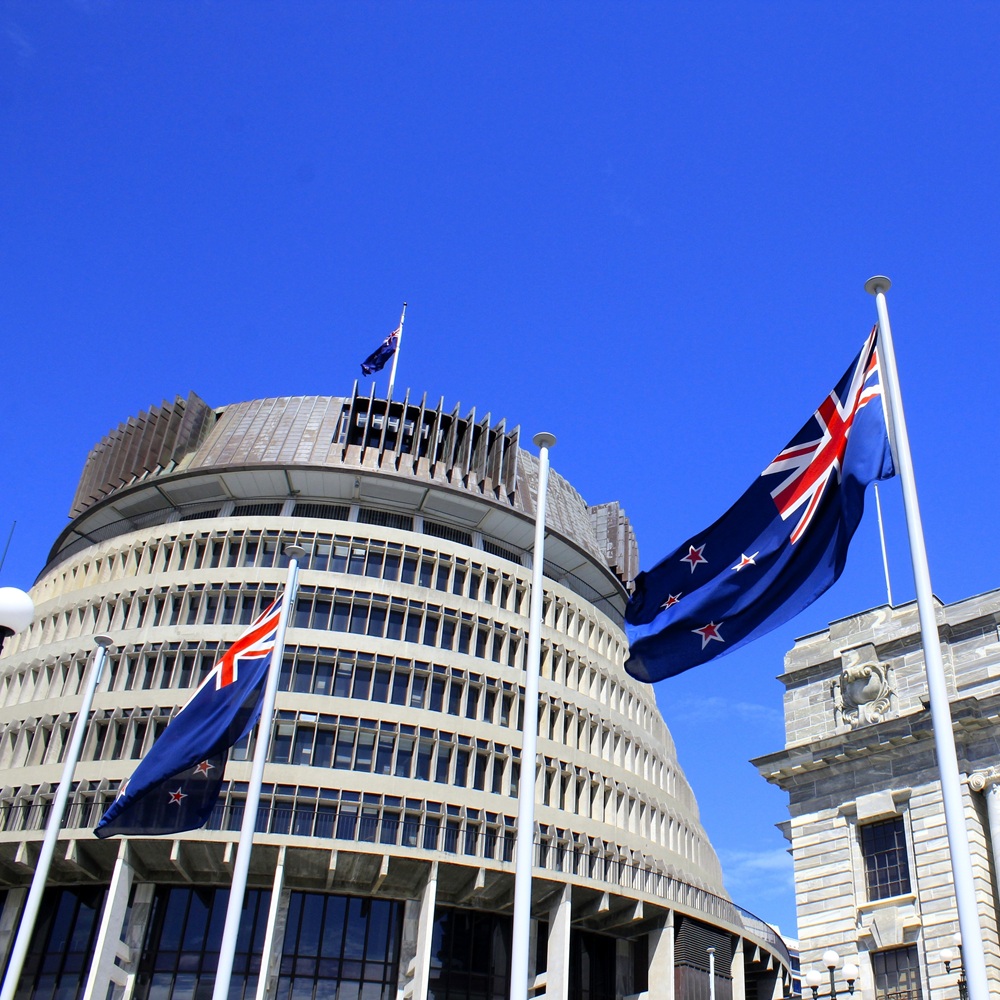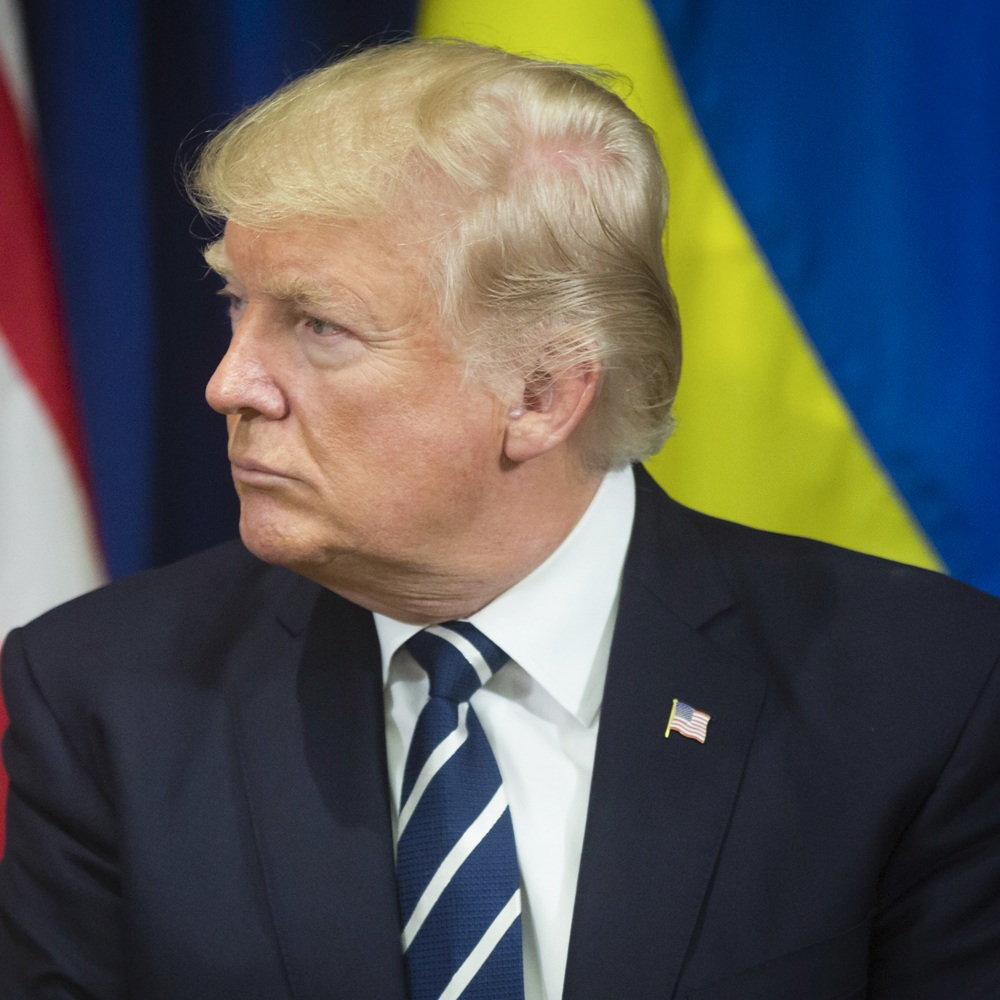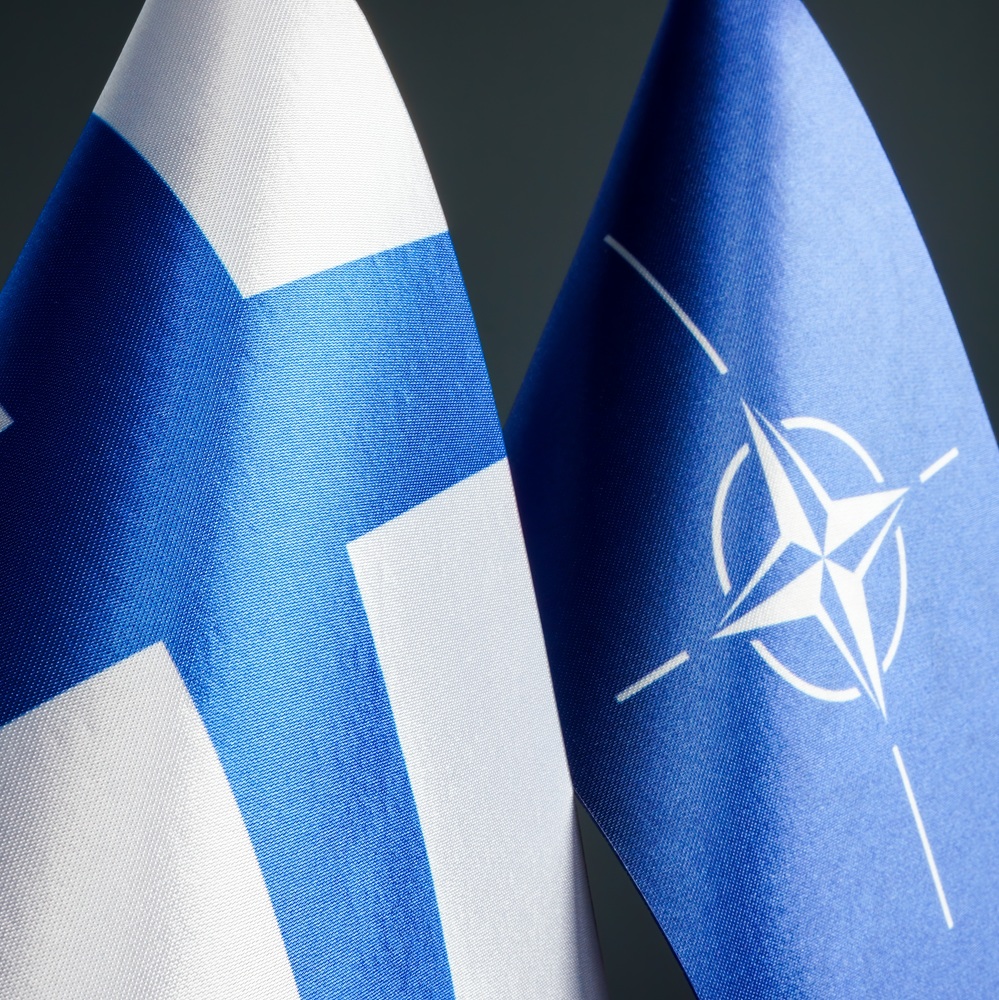
Finland: Two Years in NATO
by Sergey Andreev
한국어로 읽기 Leer en español In Deutsch lesen Gap اقرأ بالعربية Lire en français Читать на русском April 2025 marks the second anniversary of Finland’s accession to the North Atlantic Treaty Organization (NATO). Although the prospect of joining the alliance began to be seriously considered after the escalation of the Ukraine crisis in 2014, a final decision was repeatedly postponed due to the unclear advantages of this move and insufficient public support. Despite close economic ties with Russia and a tradition of cautious diplomacy known as the “Paasikivi–Kekkonen line” (often criticized as “Finlandization”), the 2022 international crisis pushed Finland to join NATO. Since then, the once-neutral country has shifted its foreign policy, increased defense spending, and expanded its arms exports. Government and Military Perspectives In December 2024, the Finnish government presented a new Defense Report in Helsinki, replacing the previous strategy issued in September 2021. Back in 2021, Finland had highlighted the growing military activity in the Baltic Sea and Arctic regions, along with the increased interest of major powers in the natural resources of the North and the Northern Sea Route. Notably, the country didn’t name any specific enemy, choosing to keep its message broad and carefulThe 2024 document takes a much more serious tone. It clearly names Russia as the main source of global instability and describes China as a growing power that challenges the U.S. and its allies. Terrorism is mentioned too, but much less often. Some of the main points about global security include the following - The return of a "large-scale, protracted war" to the European continent;- The Special Military Operation (SMO) is interpreted as a continuation of Russia’s aggressive actions in Crimea and eastern Ukraine in 2014, as well as in Georgia in 2008;- An increase in hybrid attacks and incidents involving critical infrastructure;- Growing Chinese influence on Finland and its neighboring countries;- An unpredictable and unstable defense and international security environment, with a clear tendency toward further deterioration;- The largest NATO military buildup on the eastern flank since the end of the Cold War;- Accession to NATO is described as “the most significant transformation in Finland’s defense policy since World War II”;- Ongoing integration of Finland’s armed forces into NATO’s structures and joint defense planning;- Finland is now planning its defense together with NATO, focusing not just on its own territory but also on the Baltic States, the Baltic Sea, the Arctic Ocean, and the North Atlantic. In the section on shifts in global power, Russia is named as the main cause of instability. It is described as “the most significant and immediate threat to the Allies, to security, and to peace and stability in the Euro-Atlantic region.” Other claims include: a long-standing effort to weaken the European Union, a push to restore its great power status, and an attempt to divide Europe into spheres of influence using military force. Russia is also accused of using hybrid tactics—such as spreading fear, influencing public opinion, stirring political divisions, and blocking decisions—to target European countries and their people. Its Special Military Operation is seen as the beginning of a broader, more direct, and unpredictable conflict with the West. China is characterized as a less aggressive player. It is noted that Beijing is rapidly modernizing its armed forces, has intensified intelligence activities in the United States and Europe, and has strengthened military and economic cooperation with Russia, the development of which will determine Moscow’s ability to exert influence over Europe. At the same time, Finnish strategists place greater emphasis on the ongoing competition between China and the United States for global political, military, economic, and technological dominance. In matters concerning NATO’s role in defense, it is noted that the Alliance has intensified its cooperation with partners in the Indo-Pacific region, increased its military presence on the eastern flank and the number of military exercises, and is continually updating both general and regional defense plans in the event of a large-scale conflict. With the accession of Finland and Sweden, NATO has become geographically closer to strategically important areas for Russia, including Moscow, Saint Petersburg, Kaliningrad, the Kola Peninsula, Belarus, the Baltic Sea, and the Arctic region. Within the Alliance, ensuring the security of maritime transport routes and the modernization of military infrastructure in Northern European countries is viewed as a key condition for the potential reinforcement of troops from North America. The role of the European Union is described as complementary to NATO, while it is also noted that the EU is increasing defense spending and expanding technological cooperation. The report was published after the election victory of Republican U.S. President Donald Trump, known for his isolationist views, which is partially reflected in the document through emphasis on European independence in security matters and the need for further military expenditures. On intra-European regional issues, the report focuses on cooperation with the member states of the Nordic Defense Cooperation (NORDEFCO), the Baltic States, and the United Kingdom, as well as on Germany’s shift in security policy, France’s increased defense spending, and Poland’s growing purchases of military equipment. In military and technology matters, the document highlights the growing role of unmanned systems (both remote-controlled and autonomous), artificial intelligence, and advanced human capabilities like improved thinking and synthetic biology. It stresses the need to use the latest scientific and tech innovations in developing weapons — a step that could help make up for fewer soldiers on the battlefield. Cyberspace and outer space are seen as new areas of military and technological competition. This view is based on several factors: the rapid growth of space technologies (driven by private companies), easier access to space, and heavy reliance on cyber tools and satellites for both military and civilian use. Information warfare is also becoming more influential alongside traditional combat. The document notes that small countries can benefit in such conflicts by using innovations smartly and managing resources well. Still, Helsinki does not rely only on high-tech solutions. A key part of Finland’s military strategy is preparing both its army and population for long-term, grinding conflicts. This includes signing long-term arms supply contracts, building strategic reserves, keeping supply chains strong, and staying ready to protect their way of life. Among the main conclusions, the authors of the report present the following: - Finland and Europe are facing a significant decline in security, with no short-term improvement expected.- Russia poses and will continue to pose a constant security threat to Europe and Finland;- Finland will provide military assistance to Ukraine for as long as necessary;- Following the accession of Finland and Sweden to NATO, the Nordic countries, the Baltic Sea region, and the High North have formed a unified geostrategic space; the Baltic Sea region holds strategic importance for Finland;- Finland’s defense will rely on maintaining conscription, strengthening the training of its military reserve, a strong public will to defend the country, and support from NATO membership.- Commitment to total defense — a combination of all national and international military and civilian measures that ensure the protection of the country under any circumstances (seven components are listed: government administration, international relations, defense capability, internal security, economy, functional capabilities of the population, and psychological resilience of people); There is a need to improve working conditions in the defense industry, increase production, and secure steady, reliable supply chains. A gradual increase in Finland’s military spending. - The development of the EU’s defense potential, and movement toward greater independence of the European Union both in policy and in the development of military technologies and defense supplies;- NATO’s readiness to provide the full spectrum of forces necessary for large-scale, high-intensity combat operations; Finland, in turn, must also create all the necessary conditions for the presence of allied troops on its territory. Similar assessments are presented in the Military Intelligence Review of Finland — 2025 (previous publications date back to 2021 and 2023), prepared by the General Staff of the Finnish Defence Forces. Russia is also named as the main threat there, which “seeks to reduce Western influence, secure its sphere of influence,” “views security policy as a zero-sum great power game in which NATO expansion strengthens the position of the United States and thereby weakens Russia’s security,” and “the interests or security of neighboring countries are not an important factor in Moscow’s calculations.” In addition, Russia is accused of seeking to turn the Global South against Western countries, in particular, there is a reference to “an attempt to present the BRICS group as part of an anti-Western ‘global majority’” . As for the Northern European direction, the Finnish General Staff notes the buildup of Russian forces on the Kola Peninsula and in the Arctic region, attributes to Moscow attempts to gain unrestricted access to the Northern Sea Route and to weaken the integration of Finland and Sweden into NATO structures. Helsinki predicts that after the end of the conflict in Ukraine, Russia’s priority will be the accelerated buildup and modernization of forces in the reestablished Leningrad Military District, bordering Scandinavia. Finnish military officials do not believe in a quick settlement of the situation in Ukraine and forecast a deterioration of Russia’s relations with the West in the coming years, a struggle by Russia for shipping in the Baltic Sea “by any means,” continued attacks on underwater infrastructure in the Baltic (a reference to damage to undersea cables, although no exact culprit is named), escalation of the race between the West, Russia and China for the resources of the High North, and increased intelligence and sabotage activities by Russian special services in Finland. China is not viewed in an entirely negative light; instead, there is recognition of Beijing's ambition to become a political, economic, military, and technological leader by 2049, marking the centenary of the founding of the People's Republic of China. China's growing influence over countries of the Global South is also noted. Russia–China relations are seen as a "lifeline" for the Russian economy and a means of circumventing sanctions. However, Beijing is not seen as an equal partner, but as someone benefiting from Russia’s growing isolation. This makes Russia more dependent on China. The war in Ukraine is seen as helping China, since it distracts the West from China's global rise. At the regional level, Helsinki plans to enhance cooperation and update the foundational NORDEFCO agreement during its presidency of the organization in 2025. This push for renewal is driven by the evolving security environment and Finland’s recent accession to NATO alongside Sweden. Back in April 2024, the defense ministers of the member states signed a memorandum outlining a new vision for NORDEFCO. According to the document, by 2030 the countries plan to improve joint military planning and operations, make it easier to move troops across borders, boost cooperation and intelligence sharing, both directly and through NATO and the EU, and keep strengthening the defense industries of the Nordic countries. NORDEFCO is not officially seen as a mutual defense agreement or a command system like NATO; however, in recent years, it has started to show features usually found in a defense alliance, mostly because of the actions of some of its members. In 2021, the defense ministers of Denmark, Norway, and Sweden signed a deal to strengthen cooperation, allowing for "joint action in times of peace, crisis, or conflict." In 2022, they gave each other permission to use their airspace and military bases. That same year, the defense ministers of Finland, Norway, and Sweden updated their three-way agreement, further growing their military cooperation. After Finland and Sweden applied to join NATO, Denmark, Iceland, and Norway made a joint promise to fully support them if either country were attacked. While NORDEFCO has not yet become an organization like NATO, the current level of defense cooperation between the Nordic countries at the regional level — and repeated promises to help each other in case of conflict — suggest that in the coming years, this effort might start to look like a smaller version of NATO in Northern Europe. This kind of setup would likely be less full of red tape, quicker at making decisions, and made up of countries that share similar views and speak with one voice. It would also have a lower risk of going backward — unlike some NATO members who, in recent years, have threatened to block decisions, added extra demands for new members, or even talked about leaving the Alliance. Defense and Military-Industrial Complex Expenditures Threats identified by Finnish politicians and the military automatically require growing expenditures and an acceleration of the defense industry. According to the Stockholm International Peace Research Institute (SIPRI), from 2014 to 2020, Finland’s military spending remained annually at the level of 1.5% of GDP, while in absolute terms it gradually increased — from $3.57 billion to $3.9 billion. Amid the pandemic in 2021, the figure dropped to $3.65 billion, but by the end of 2022 it amounted to $4.47 billion, and in 2023 — to $6.85 billion, or 2.4% of GDP. The British International Institute for Strategic Studies (IISS) provides similar estimates: growth from $3.72 billion in 2014 to $6.89 billion in 2024, with the budget for 2025 estimated at $7.47 billion. Helsinki does not intend to stop there — on April 1, 2025, following recommendations from the Ministry of Defense, the government began preparations for a phased increase of the military budget to at least 3% of GDP by 2029. Over four years, it plans to raise allocations by €3.7 billion, expand the state defense order, and develop new rearmament programs for the 2030s. Helsinki also views the prospects of its domestic defense industry with optimism — according to the Finnish think tank SaferGlobe (which, according to its website, is “engaged in the study and development of tools to promote sustainable peace and security”), in 2023 arms exports reached €333 million (of which €141 million accounted for weapons intended for civilian use in self-defense, sports, and hunting) — a record since record-keeping began in 2002. About 85% of military exports were distributed within Europe. The largest importing countries by value were Sweden (€51 million), Latvia (€34 million), and Lithuania (€19 million) — together, these three countries accounted for more than half of all military product exports. In value terms, the largest share of exported military products (32%) consisted of land vehicles and their components. The next largest export categories were ammunition (17%), as well as explosives and charges (15%). The largest exports of civilian weapons were to the United States (€52 million), Canada (€15 million), and Australia (€9 million). The year 2023 also set a record for issued export licenses for military products — €667 million. The largest recipient countries of export licenses were Slovakia (€201 million), Japan (€154 million), and Ukraine (€88 million). Similar conclusions were reached by the state investment company Finnish Industry Investment (Tesi), which in autumn 2024 surveyed 368 domestic defense companies: 144 of them were identified as “fast-growing startups and growth companies,” while the rest were described as “more established players with a long history, mainly providing consulting services to the Finnish Defence Forces.” The highest growth rates were shown by producers of dual-use goods, whose net profit has increased annually by 30–40% since 2022. At the same time, companies engaged exclusively in the military sector faced difficulties in attracting investment. 50% of defense companies were located in the capital region of Uusimaa, where the leaders were Helsinki (74 companies) and its satellite city Espoo (65); another 16% were based in the Pirkanmaa region centered around Tampere (40). Rounding out the top five were the high-tech “capital” Oulu (21) and another satellite of Helsinki, Vantaa (14). By type of activity, the majority of companies (246) operated in the support and logistics sector; 70 were engaged in the design of combat command and control systems (C4I — Command, Control, Communications, Computers, and Intelligence); 20 firms cooperated with the land forces, 13 with the navy, 10 with the air force, five worked in joint operations, and the remaining four were involved in space technologies. A New Strategy — A New President Finland’s entry into NATO happened during the second and final term of President Sauli Niinistö. While he followed the West’s general approach on the war in Ukraine and supported anti-Russian sanctions, he still tried to keep some level of political dialogue with Russia. After February 2022, this became almost impossible, and Finland officially ended its nearly 80-year policy of staying neutral. In the two-round election held in January and February 2024, Finnish voters chose Alexander Stubb from the National Coalition Party as their new president. Stubb studied in the United States and France, and previously worked as a Member of the European Parliament, as well as Finland’s Foreign Minister and Prime Minister. Back in 2014, when Finland still followed the "Paasikivi–Kekkonen line" of cautious foreign policy, Stubb was one of the only top officials who openly supported joining NATO. On the topic of relations with Russia, he said that “Russia’s integration with the West was an illusion.” This view may be influenced by his family history. Stubb’s father, Göran Stubb, was born in Käkisalmi — a town that was given to the Soviet Union after the Soviet–Finnish War of 1939–1940, renamed first as Kexholm (in Swedish), and later as Priozersk. On his father's side, Stubb’s grandparents came from Vyborg, which also became part of the Soviet Union after the war. However, the family had already moved to Helsinki before the conflict started. In his inaugural speech on March 1, 2024, Alexander Stubb uncompromisingly stated to the citizens of Finland that “the post–Cold War era is over” (placing the blame on Russia), “the instruments of cooperation have been turned into weapons,” “the world is in a transitional state,” and “the creation of a new world order takes time.” He added that Finns “will have to respond quickly to changing circumstances, as was the case with NATO membership,” and that “when times become difficult, I too will be ready to make tough decisions to ensure the security of our country.” In addition to his campaign promises, the newly elected president confirmed his commitment to the previously introduced “value-based realism” (arvopohjainen realismi), which he pledged to be guided by in the conduct of foreign policy if elected. Later, this was officially included in the government’s report on foreign and security policy in June 2024. Among other ideas, the report especially highlighted the following: commitment to democratic values, the rule of law, international law, and human rights; strengthening the country’s defense; staying out of military conflicts; and being open to dialogue with countries that do not share these values. The election of A. Stubb as president strengthened the pro-Western trends in Finland’s foreign policy. On September 1, 2024, the Defense Cooperation Agreement with the United States entered into force, under which Finland opens 15 of its military facilities for possible use by U.S. forces, while Helsinki will not charge rent for premises or land made available to the United States. On September 27 of the same year, the Finnish Ministry of Defense announced the placement of NATO headquarters on Finnish territory — in Mikkeli in the southwest of the country, 140 km from the border with the Russian Federation, and in the northern region of Lapland. On April 1, 2025, the Finnish authorities announced preparations to withdraw from the Ottawa Convention banning anti-personnel mines (a similar step had previously been taken by the defense ministers of Latvia, Lithuania, Poland, and Estonia), stating that this is “a cost-effective way to supplement the capabilities of the armed forces,” but adding that the country would remain “committed to the humanitarian goals of the convention” even after a possible withdrawal. On April 15, 2025, a Finnish servicemember took part for the first time in a flight aboard a NATO E-3A Airborne Warning and Control System (AWACS) aircraft during Ramstein Alloy 2025 exercises in the Baltic region. The NATO Airborne Early Warning & Control Force (NAEW&CF) includes personnel from 17 countries, in addition to which Canada, France, Finland, and Lithuania also contribute their staff. NATO noted that the E-3A is the first multinational flying unit created by the Alliance. Statements regarding Russia, despite initial uncompromising tone, began to soften after the election of Donald Trump as President of the United States, who held a different view of the Ukrainian conflict compared to the strongly pro-Ukrainian administration of Joe Biden. As early as April 2024, Alexander Stubb stated that there was no need to conduct political dialogue with Russia, and considered military action the only path to peace in the context of Ukraine. Under the new Washington administration, the Finnish president approved of the negotiations between the U.S. and Russian leaders, but again repeated the Ukrainian position on the need for a “just peace” and Ukraine’s accession to the EU and NATO. During his March 2025 visit to Florida, Stubb attempted to dissuade Donald Trump from cooperating with Russia and also called for tougher sanctions against Moscow. On April 1, 2025, the Finnish president admitted that European countries had started talking about renewing contact with Russia. He said that Finland must "morally prepare" for rebuilding political ties with Russia, since "nothing changes the fact that Russia exists and will always be a neighbor." However, he did not give any timeline for when relations might be restored. The situation around the war in Ukraine is made more difficult by the Trump administration’s growing isolationism, along with threats to pull out of talks and a trade war that Washington has launched against almost the entire world (though some parts of it have been paused). This raises fears of a new “Great Depression.” The European Union’s success at the negotiating table will depend on how united its member states are, since they have different geopolitical interests. Although Finland supports calls for a ceasefire, it does not plan to stop its military support for Ukraine or oppose Ukraine joining NATO. Alexander Stubb, on at least two occasions (in November 2024 and March 2025), publicly warned Ukraine against following a “Finnish scenario.” This would mean giving up on NATO membership and possibly giving up territory—similar to what Finland did after World War II, when it accepted neutrality and lost 11% of its land. In a comment on efforts to resolve the conflict in 2025, Stubb criticized Finland’s past policy of “good neighborliness” with the Soviet Union. He said that while Finland kept its independence in 1944, it lost land, part of its sovereignty, and the ability to make its own decisions freely.










